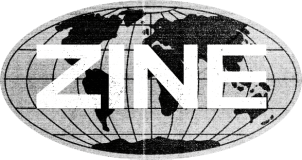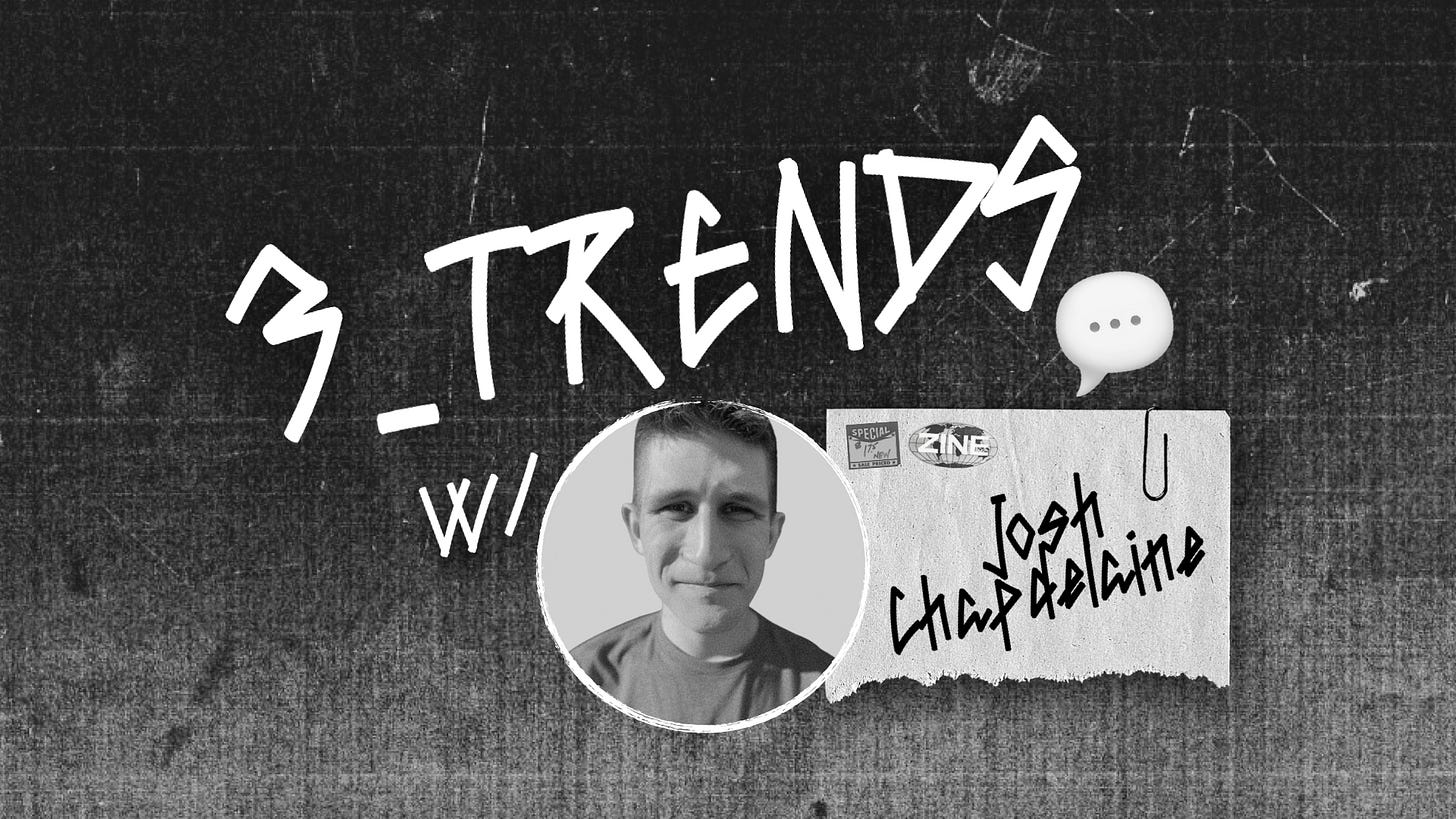3_TRENDS_Vol.2: Josh Chapdelaine: Anti-Social Audio, Entertainment Cycles + Influencer Burnout
Vol.2
3_TRENDS is an interview series with the world's leading cultural researchers and thinkers, sharing their favorite overlooked trends.
Josh Chapdelaine (JC) is an audio and digital producer, educator, and writer. He produces Douglas Rushkoff’s Team Human Podcast, the Digital Void Podcast, and teaches podcasting at Queens College.
MK: Josh, what’s on y…


